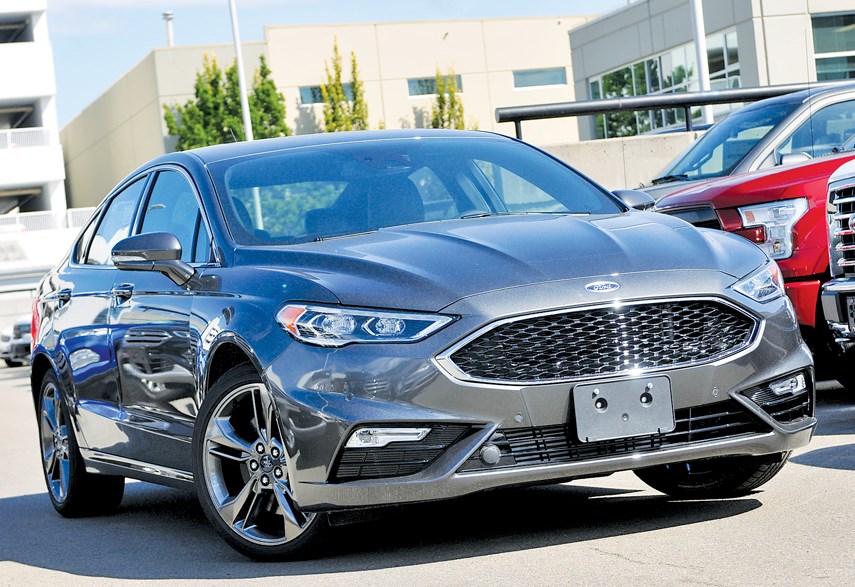Cars are going out of fashion.
Soon, you won’t be able to buy one at all. Why, it’s not even that long since Ford announced that they weren’t going to sell any cars at all, apart from the Mustang.
Instead, they were going to sell what people reportedly want: Crossovers.
Now, you’ve probably heard before how crossovers have become the hottest market segment in North America (apart from pickup trucks), and how the family sedan is rapidly becoming a thing of the past. However, perhaps you didn’t quite realize things had got to the point where a major automotive company like Ford can up and outright get rid of all their cars and still have a viable business plan.
Surely that’s crazy, isn’t it? Well, no, actually, it’s fairly smart. Contrast Ford’s position with that of Cadillac, which is still struggling to make ends meet despite being the go-to American car brand for blending success and conspicuous consumption. Cadillac spent huge money on R&D for sedans and the like, and as a result the Escalade is getting outcompeted. Suddenly, Lincoln’s multiple SUV plan seems poised to surpass GM’s halo brand. They can’t keep the Navigator in stock.
That’s the business side of things, and I’m happy to leave it up to the professionals and their ulcers. Figuring out what the public actually wants to buy, as opposed to what they say they’ll purchase, is a game that’s above my pay grade.
The problem is that by eliminating the choice, the manufacturers are ensuring that the buying public doesn’t really have an option other than buying a crossover. Want a medium-sized wagon as was available with the old Subaru Legacy or Mazda 6? Sorry, they’re only luxury products now. Prefer a sporty hatchback, but are leery of Volkswagen GTI reliability? Sorry, friend, unless you’re willing to put up with the quirks of the three-doored Veloster, several manufactures have decided that market is a dead end.
To my mind, it’s the same thing that’s happened with the manual transmission. People have been lamenting the end of desire for the manual transmission for years, but the fact is, people who want a manual are often forced to take a more basic trim, or the lower-spec engine. Sure, the take-rate isn’t going to be great on anything, not in a world of stop-and-go driving and stop-and-text drivers, but there would always be a few owners who’d stump for a stick if they could.
Choice is inconvenient if you’re a manufacturer. What you want is the old Henry Ford model, where the cars are all the same, right down to the colour.
But consumers want choice. They’ll pick the silver, grey, or white car if convinced that it’ll do better on resale down the line, but there are those folks who will always want a deep blue or bright red. They’re buying the car for themselves, not the resale.
Likewise, there are plenty of people who would have cheerfully purchased something like a new Ford Fiesta, and who are now expected to buy a Ford Ecosport. And let’s not pick on Ford too much either here: Subaru no longer offers the Forester with a turbocharged engine, nor can you currently buy a hatchback version of the quick little WRX.
Here’s the thing: Canadians have historically purchased downwards, buying what we needed more than what we wanted. Yes, the availability of cheap credit and a real-estate-driven comfort with high debt levels have led us to buy more than what was absolutely necessary, but we still buy a lot more Honda Civics than CR-Vs.
But for how long? Suppose Honda also decides that the Pilot, CR-V, and HR-V are sufficient enough to drive profits. Suppose Toyota, Chevrolet, and Chrysler follow suit. Suppose that soon there’s nothing left on dealer lots other than jacked-up cars that handle slightly worse and get slightly worse fuel economy, all in the name of feeling a bit safer when you drive to the store.
I put it to you, that we don’t want this crossover-driven future. Yes, it’ll work for a while, but the odds are we’re heading towards a tightening of the purse strings, another time when cheap and cheerful is far more important than feature-loaded. A time when we’d rather have efficiency at the top of the list.
I’m not saying crossovers aren’t useful for some families, but their success is a result of a combination of favourable emissions controls, and that human desire to buy more than what’s needed. We need to find our way back, back to plain-jane machines that we only use when absolutely necessary.
The manufacturers won’t listen, of course. They’ll go where the profit is, and small cars aren’t usually about big profit margins.
Even so, the customer is still king. If the car you’re after isn’t out there on the lot, don’t buy your second choice option. You never know if the pressure might bring the humble family sedan back to life.
Brendan McAleer is a freelance writer and automotive enthusiast. If you have a suggestion for a column, or would be interested in having your car club featured, please contact him at mcaleeronwheels@gmail.com. Follow Brendan on Twitter: @brendan_mcaleer.



